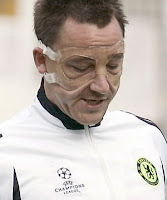
Is this the demise of the greatest rugby club in the world? The Irish provinces have joined the English clubs in banning their players from the Barbarians game against South Africa on December 1, meaning the game is fast becoming a bit of a hollow affair.
The Barbarians, who will be coached by Irish boss Eddie O’Sullivan, are also worried that the other northern hemisphere stars named in the initial list to face South Africa may be a doubt because of club commitments.
In 1948, the Australian’s asked the Barbarians to put together a team that would play the touring Wallabies. This was the first time the team in black and white would face an international side and they ran-out 9-4 victors. It proved such a success on and off the pitch it became the blueprint for the future.
But that future is looking seriously bleak with it being unlikely that the Ligue National de Rubgy, or the Welsh/Scottish clubs will allow their players to take part either given the Welsh involvement in the EDF Energy Cup and the programmes of Magners League and top 14 fixtures that weekend.
Premier Rugby chief executive, Mark McCafferty said, “These sort of one-off fixtures don’t really fit professional rugby these days.” The Barbarians are in hot water with Premier Rugby after approaching English players, after being given clear instructions not to by the board of the Guinness Premiership.
“We do recognise the great cause of the Barbarians, the brand and the charitable causes they support, and we are prepared to work with them on the end-of-season games they traditionally have and on some of the tours they do – but they have to understand that during the season it’s not possible.”
Having done without their leading players for the duration of the recent World Cup, you can understand Premier Rugby’s stance on seeing their players play in the Guinness Premiership. But it does bring to mind the question, why not tidy-up the international rugby fixture scene?
The real problem is the build-up of fixtures during the season. With this year being a World Cup year, and the Six Nations starting in February, northern hemisphere clubs don’t see much of their international stars. The drop in club rugby attendances mean that the boards of these clubs want to see their stars playing for their club in order to attract the fanbase.
Thus, any attempts to fit international fixtures or friendly matches in the middle of the season are met with a certain degree of pessimism from rugby unions.
Eddie O’Sullivan will seek help from the All Blacks in order for him to form a team that will challenge the Springboks. Not a bad substitute considering the way the Barbarians play. But the point of the baa-baa’s is to see nations coming together to form a super side. What this game is turning into is a friendly in which the South Africans take on the remainder of the southern hemisphere.
Whilst this may still be an exciting encounter, where’s the logic in playing it in the northern hemisphere when there are no northern hemisphere players. The International Rugby Board needs to seriously look at the fixture list and make space for fan friendly games such as this. Because in the end do we really want to lose such a great tradition?




